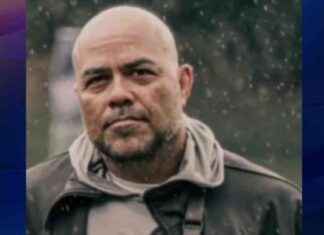The bishopric of Barcelona has facilitated a meeting between the delegate of the Society of Jesus in Catalonia, Enric Puiggròs, and a victim of pedophilia who demands compensation. It is about V., a retired doctor, who suffered abuse by three religious from the Sagrat Cor Jesuïtes Barcelona school on Casp street. The meeting was sponsored by the auxiliary bishop of Barcelona, ??David Abadías.
The interview took place on the 5th, in the same hall of the Bishopric where this victim and Abadías himself, who was the most trusted cardinal of Cardinal Juan José Omella, Archbishop of Barcelona and president of the Episcopal Conference, had seen each other a week earlier. On that occasion, the auxiliary bishop praised his courage for overcoming pain and denouncing the facts. He also asked permission to address the Society of Jesus.
Enric Puiggròs, provincial of the Company and president of the Fundación Jesuïtes Educació, on which the schools of the congregation depend, agreed to also ask for forgiveness personally from V., who is married and attended the appointment with his partner, like the time former. It has been necessary for this doctor to publicly denounce his case twice (in 2014 and in another more recent one) for the Church to contact him.
His case, however, was well known behind closed doors. He had priest relatives and a Jesuit uncle. Chance would have it that he was the family doctor of the Jesuïtes Casp religious. On March 15, 2022, after the death of his mother (before he did not gather the courage to do so), he filed a complaint with the Cremades law firm.
Auxiliary Bishop Abadías, whose empathy and discretion have been praised, made a move to leave when the couple and Enric Puiggròs sat face to face, but V. urged him to stay. The provincial of the Society of Jesus told him verbatim: “We are very sorry.” The victim appreciated the moral reparation that those words meant, even though they came “so late”, and she remembered her personal ordeal.
Religious with the habits of the Jesuits, he said, “they expropriated his innocence when he was 6 or 7 years old.” Perhaps those words remained in the memory of Enric Puiggròs when just two days later he starred in a public appearance before the press to request forgiveness and regret that these events took place in institutions where children had to be protected. “We apologize. Sorry for the suffering caused.”
V., however, was surprised that the provincial did not say anything in relation to the announcements that he would make to the press shortly after, such as the hiring of the Roca Junyent law firm. And so he told him in the talks that both have held subsequently. The provincial apologized for the lack of information about him, but he shielded himself by claiming that the matter of the lawyers was being negotiated until the last moment.
Enric Puiggròs insisted before the journalists on the need to repair the damage: “We are open to assuming our responsibility, if it is shown that we have it.” In addition to the request for forgiveness, which he has already obtained, that is what V. is looking for, who in the complaint that he sent to the Episcopal Conference, said: “My motivation is that the facts be known and repaired. My youth and adolescence were very hard”.
A criminal conviction is unfeasible in almost all cases due to the years that have elapsed. The provincial of the Society of Jesus understands that many victims were silent for a long time and that even today they prefer to air their case in the newspapers rather than go to the Jesuits (who have enabled the email address proteccion@jesuitas.es). “If the victims believe that the prescription should be extended, they will have us at their side,” he stressed.
Enric Puiggròs was not explicit when it came to possible extrajudicial economic compensation, as the Catholic Church has achieved in countries such as France or the United States, among others. “There is no price list,” explained the delegate of the Society of Jesus, who vowed “an opening to reparation” during “therapeutic processes,” without going into more detail despite the insistence of journalists.
This lack of specificity has been another of V.’s reproaches, who did not feel identified with the words of the provincial when he said in his subsequent public appearance that he understood the doubts of the victims. Many, he admitted, were reluctant to go to denounce the same institution where they suffered the abuse. It was not the case of V., who explained that he did not contact the Society of Jesus because he did not know how to do it.
“The Church has many websites and electronic addresses, but little publicized and less interconnected.” The Company delegate, who chairs the Fundación Jesuïtes Educació, acknowledged that the criticism was well founded and admitted that there was still much room for improvement in this field. Two days later, before the press, he was more explicit: “We will assume the subsidiary civil responsibilities that correspond to us.”








